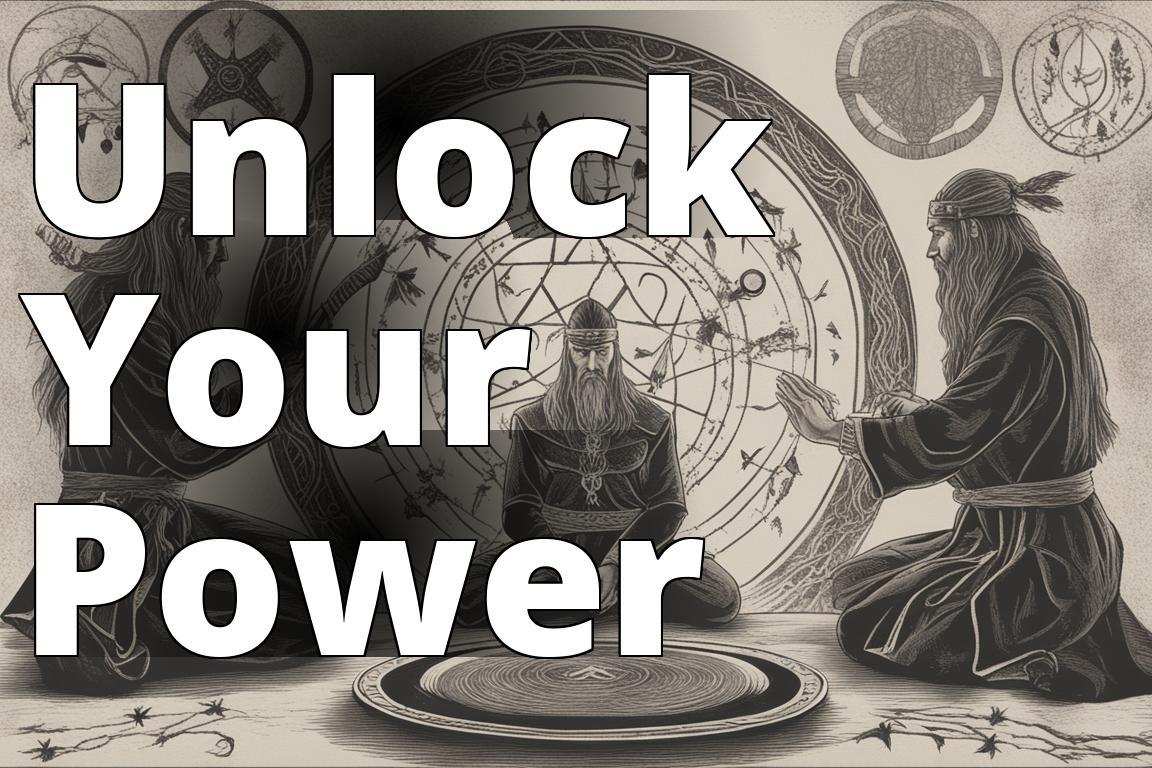Norse rituals and spells were integral to the historical and cultural fabric of ancient Scandinavia. They shaped the understanding of the spiritual world and the interactions with divine forces. The study of Norse rituals and spells offers a fascinating glimpse into the rich and complex religious traditions of the Norse people, shedding light on their worldview and their approach to the realms of the spiritual and supernatural.
What the Reader Will Learn
By reading this article, you will learn:
– The significance of the user in Norse rituals and spells, their responsibilities, and relationship to spiritual forces.
– The different types of users in Norse rituals and spells, their specific roles, and abilities.
– The tools, implements, invocations, offerings, spells, and ethical considerations for the user in Norse rituals and spells.
The Role of the User in Norse Rituals and Spells
The individual known as the user played a pivotal role in channeling spiritual energies, communing with deities, and harnessing the power of ancient magic. This section delves into the definition and significance of the user within Norse spirituality, exploring their responsibilities and their relationship to the spiritual forces that permeated the Norse cosmos.
Definition and Significance of the User
The user in Norse rituals and spells was an individual entrusted with the sacred task of conducting rituals, casting spells, and communicating with the spiritual entities that inhabited the Norse pantheon. They were seen as intermediaries between the mortal realm and the divine, wielding the knowledge and power necessary to navigate the complexities of the spiritual world. The role of the user was not confined to mere practitioners of magic; rather, they were viewed as custodians of ancient wisdom and traditions, carrying the responsibility of upholding the sacred knowledge passed down through generations.
Responsibilities and Relationship to Spiritual Forces
The user’s responsibilities encompassed a wide array of tasks, including the performance of rituals, the casting of spells, and the interpretation of omens and signs. They were tasked with establishing and maintaining a harmonious relationship with the spiritual forces, seeking their favor and guidance while also ensuring the well-being and prosperity of their communities. The relationship between the user and the spiritual forces was characterized by reverence, reciprocity, and a deep understanding of the intricate network of connections that bound the mortal and divine realms together.
Types of Users in Norse Rituals and Spells
The user role within Norse rituals and spells was diverse, encompassing a variety of individuals with distinct roles and abilities, each contributing to the spiritual tapestry of Norse society.
| Type | Description |
|---|---|
| Shamans | Intermediaries between the mortal realm and the spirit world, revered for their profound insight and wisdom. |
| Seers | Blessed with the gift of foresight, able to discern and interpret omens, dreams, and visions. |
| Practitioners of Runic Magic | Skilled in the esoteric art of runic divination and spellcasting, harnessing the power of ancient symbols. |
| Specific Roles and Abilities | Including healers, herbalists, and ritual specialists, each contributing their unique expertise and insight. |
| Type | Description |
|---|---|
| Shamans | Intermediaries between the mortal realm and the spirit world, revered for their profound insight and wisdom. |
| Seers | Blessed with the gift of foresight, able to discern and interpret omens, dreams, and visions. |
| Practitioners of Runic Magic | Skilled in the esoteric art of runic divination and spellcasting, harnessing the power of ancient symbols. |
| Specific Roles and Abilities | Including healers, herbalists, and ritual specialists, each contributing their unique expertise and insight. |
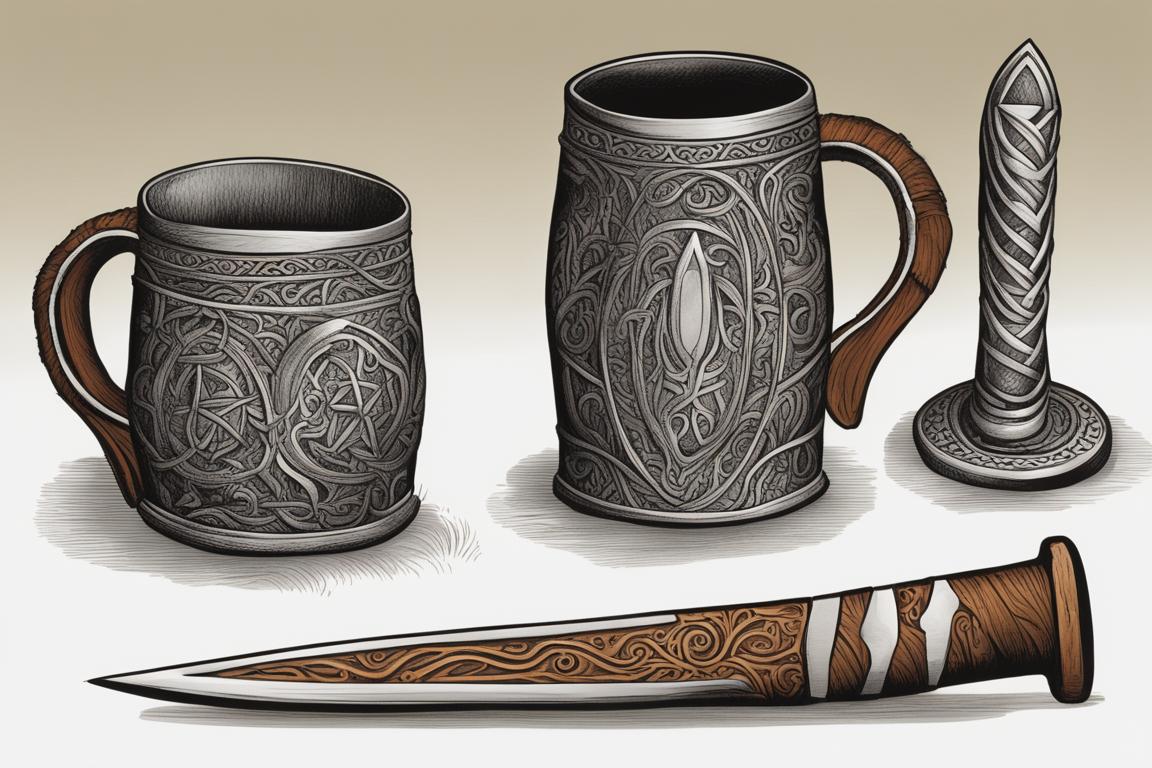
Tools and Implements of the User
Central to the practice of Norse rituals and spells were the tools and implements utilized by the user, each imbued with symbolic significance and esoteric power.
| Tool | Description |
|---|---|
| Runes | Ancient symbols with profound metaphysical significance, used in rituals and spells. |
| Staffs | Conduits for the user’s energy and intention, adorned with intricate carvings and symbols. |
| Ceremonial Items | Including incense, candles, and sacred herbs, creating an atmosphere conducive to spiritual communion and magical workings. |
These tools were not merely symbolic; they were conduits for the user’s intention and will, enabling them to channel and direct the energies necessary to effect change in the physical and spiritual realms.
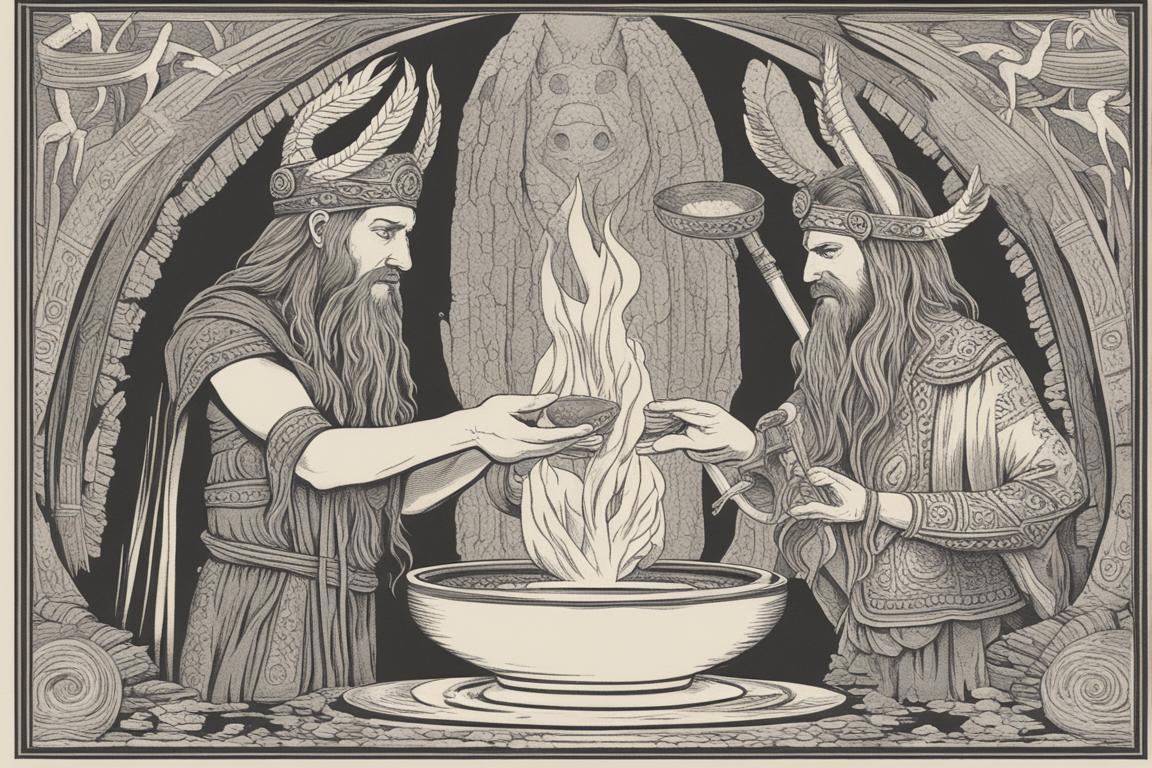
Invocations and Offerings by the User
The user employed a variety of methods to call upon deities and spirits, seeking their aid and guidance in matters of great importance. Central to these practices were the nature of offerings and sacrifices presented to the spiritual entities.
Methods of Calling Upon Deities and Spirits
Users utilized invocations, prayers, and ritualized gestures to establish contact with the divine, evoking the presence of deities and ancestral spirits to lend their aid and wisdom.
Nature of Offerings and Sacrifices
Offerings of food, drink, and precious items were presented as tokens of respect and reciprocity, symbolizing the user’s willingness to honor and nourish the spiritual entities with whom they sought to commune. The act of offering was not one of appeasement, but rather a gesture of reverence and acknowledgment of the sacred bond between the mortal and divine realms.
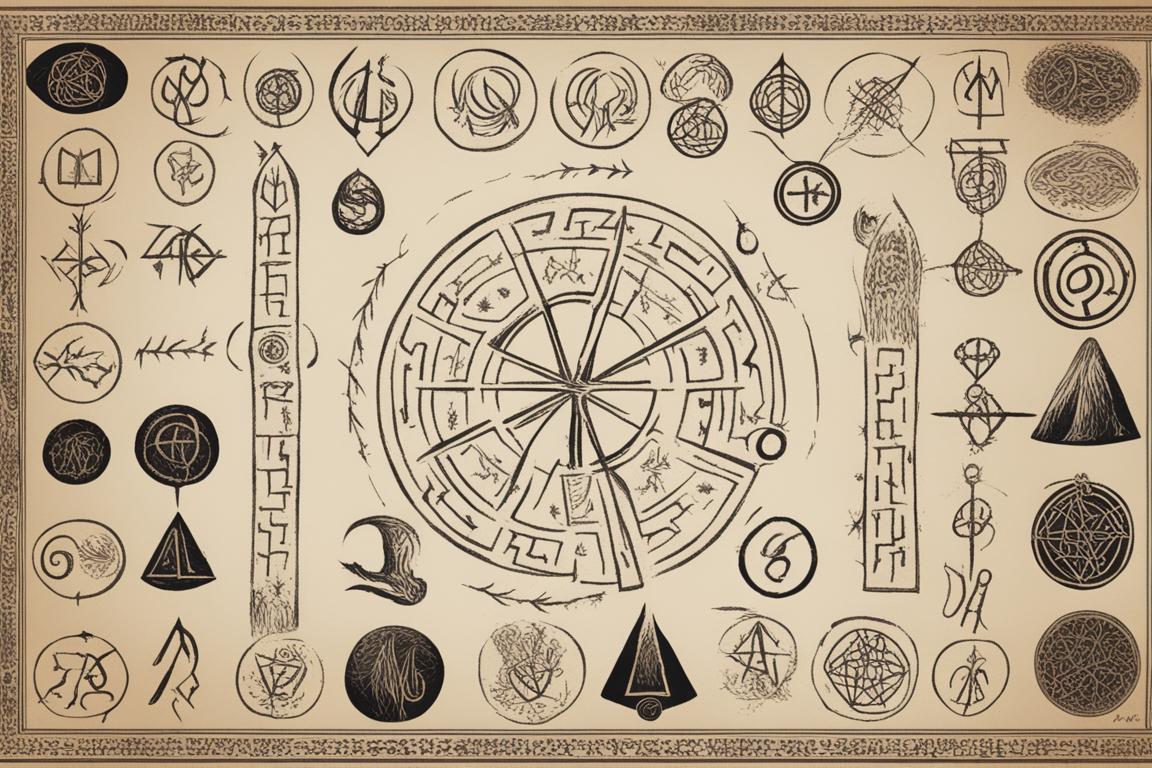
Spells and Incantations Used by the User
Spells and incantations formed a cornerstone of the user’s practice, enabling them to manifest their intentions and influence the course of events in the physical and metaphysical realms.
Use of Spoken or Written Spells
The user employed both spoken and written spells, utilizing the power of language and intention to effect change. Whether uttered aloud or inscribed on objects, these spells were imbued with the user’s will and directed towards specific outcomes.
Language and Phrases Employed
Ancient Norse languages, imbued with potent metaphysical significance, were often utilized in spells and incantations, invoking the power of ancestral tongues to lend potency and resonance to the user’s words.
Intentions Behind Magical Utterances
The intentions behind these utterances were multifaceted, ranging from healing and protection to divination and the invocation of spiritual forces. Each spell carried the imprint of the user’s will, shaping the fabric of reality in accordance with their desires.
Ethical Considerations for the User
Central to the role of the user were ethical considerations that governed their interactions with the spiritual forces and the communities they served.
Respect and Reciprocity
The user operated within a framework of respect and reciprocity, acknowledging the agency and autonomy of the spiritual entities with whom they communed. Respectful conduct and the honoring of sacred agreements were paramount in maintaining a harmonious relationship with the divine.
Spiritual Responsibility
The user bore the weight of spiritual responsibility, ensuring that their actions were guided by a sense of ethical conduct and mindfulness towards the repercussions of their magical workings. Their role as custodians of ancient wisdom demanded a high standard of integrity and ethical awareness.
Community and Tradition for the User
The user’s role extended beyond individual practice, encompassing their place within the broader Norse spiritual community and the transmission of rituals and spells through tradition and lineage.
Role of the User in the Norse Spiritual Community
Users were esteemed members of the spiritual community, offering guidance, healing, and insight to their fellow Norsemen. They played a crucial role in fostering spiritual well-being and the preservation of sacred traditions within their communities.
Passing Down of Rituals and Spells Through Tradition and Lineage
The user’s knowledge and practices were passed down through generations, ensuring the continuity and preservation of ancient wisdom within Norse society. Lineage and tradition formed the bedrock of the user’s role, sustaining the spiritual legacy of their ancestors.
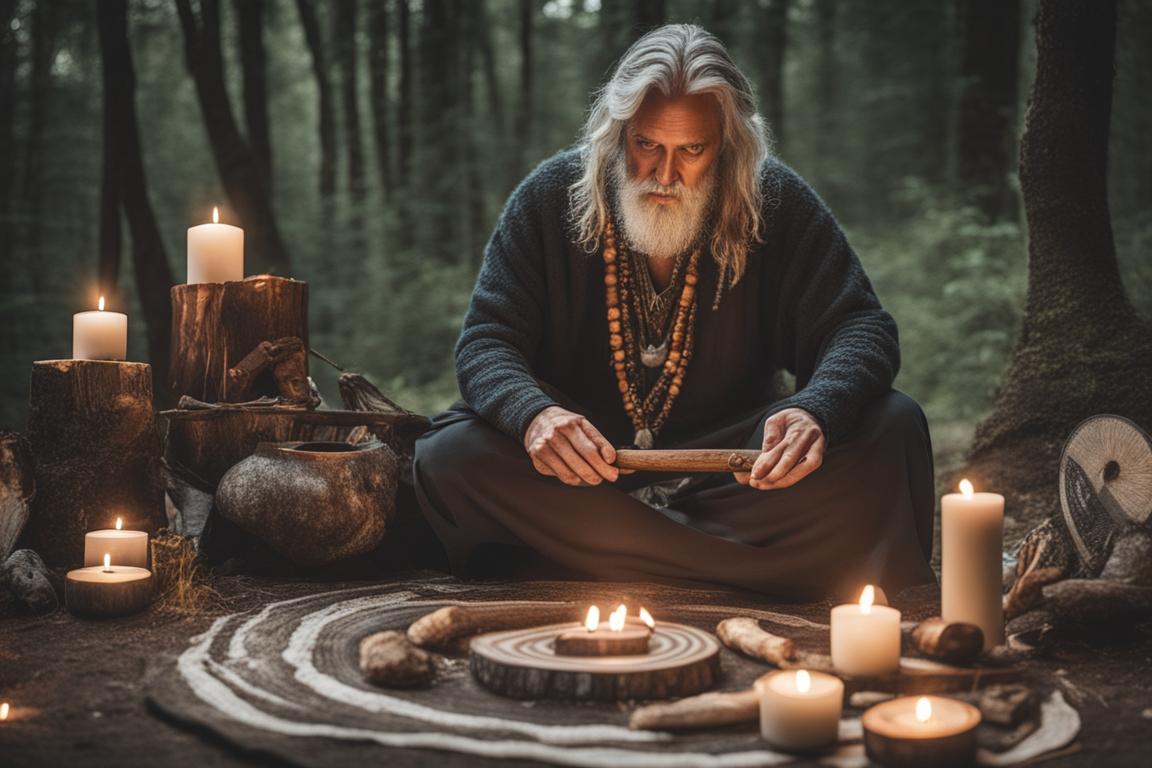
Contemporary Practices of the User
The user’s role within Norse rituals and spells continues to resonate in modern contexts, adapting ancient practices to contemporary spiritual beliefs and aspirations.
The Impact of User Participation: A Modern Shaman’s Journey
Growing up in a small village in Norway, Ingrid always felt a deep connection to the natural world and the spiritual forces that surrounded her. As she delved into the study of Norse rituals and spells, she felt a calling to become a shaman within her community.
Embracing the Role of a Shaman
Ingrid underwent rigorous training and initiation rites, learning the ancient chants, invocations, and offerings essential to her role. She became the bridge between the physical and spiritual realms, guiding her community through ceremonies and connecting with the Norse deities and spirits.
Ingrid’s journey as a modern shaman demonstrates the vital role users play in Norse rituals and spells, as they act as intermediaries between the human and divine realms, ensuring the proper conduct of ceremonies and the manifestation of spiritual energies.
Manifestation of the User’s Role in Modern Contexts
In present-day Norse-inspired spiritual movements, individuals embody the role of the user, engaging in rituals, spellcraft, and the veneration of Norse deities with a renewed sense of purpose and relevance.
Adaptation of Ancient Practices to Contemporary Spiritual Beliefs
Contemporary users draw inspiration from ancient Norse traditions, adapting their practices to align with modern ethical frameworks and spiritual sensibilities. The role of the user persists as a bridge between the ancestral wisdom of the Norse people and the evolving spiritual landscapes of today.
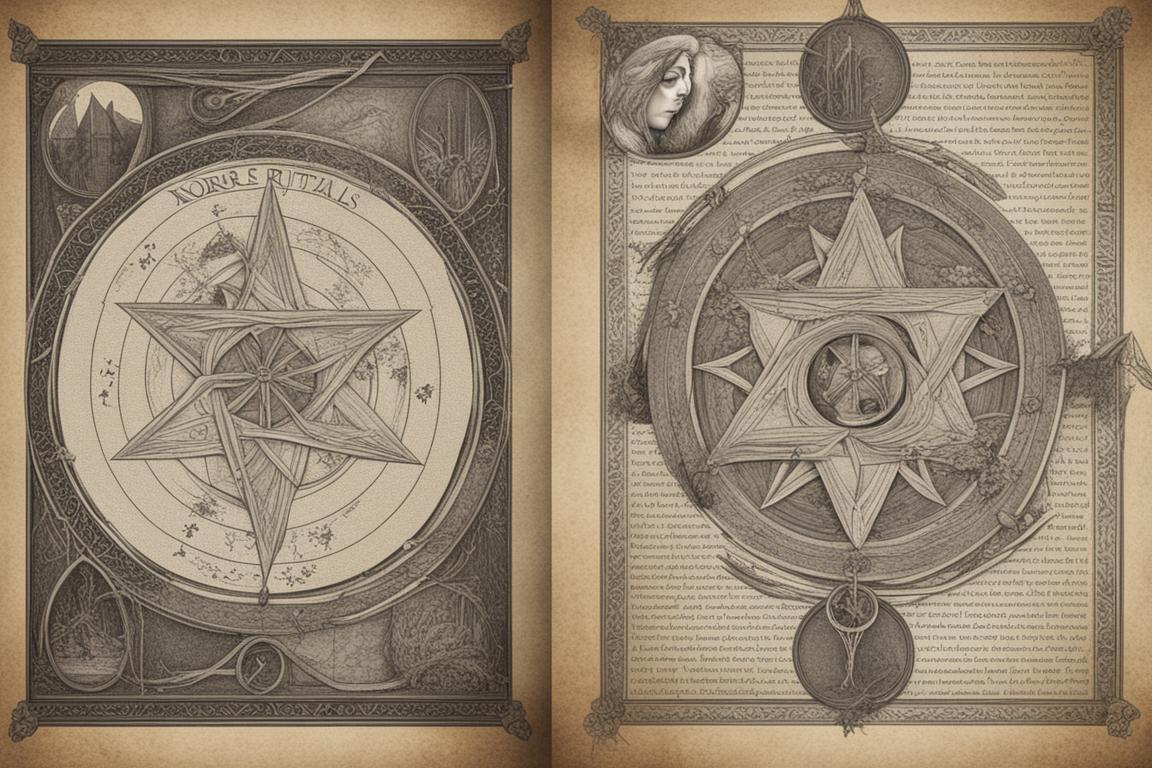
Resources and Further Reading for the User
For those seeking to delve deeper into the role of the user within Norse rituals and spells, a wealth of resources and further reading await exploration.
Books
Numerous scholarly works and practical guides offer insights into the historical, cultural, and spiritual dimensions of Norse rituals and magic, shedding light on the user’s role within these traditions.
Websites
Online platforms dedicated to Norse spirituality provide a wealth of information and communal spaces for users to engage with like-minded practitioners, fostering a sense of community and shared exploration.
Scholarly Articles
Scholarly articles offer in-depth analyses of specific aspects of Norse rituals and spells, providing users with academic perspectives and rigorous research to enrich their understanding of these ancient practices.
In conclusion, the role of the user within Norse rituals and spells is one of profound significance, encompassing the custodianship of ancient wisdom, the communion with spiritual forces, and the preservation of sacred traditions. Through their knowledge, skills, and ethical conduct, users served as linchpins of Norse spirituality, weaving together the mortal and divine realms in a harmonious tapestry of reverence and reciprocity. As contemporary users continue to uphold and adapt these traditions, the enduring legacy of the user within Norse rituals and spells resonates with timeless wisdom and spiritual insight.
